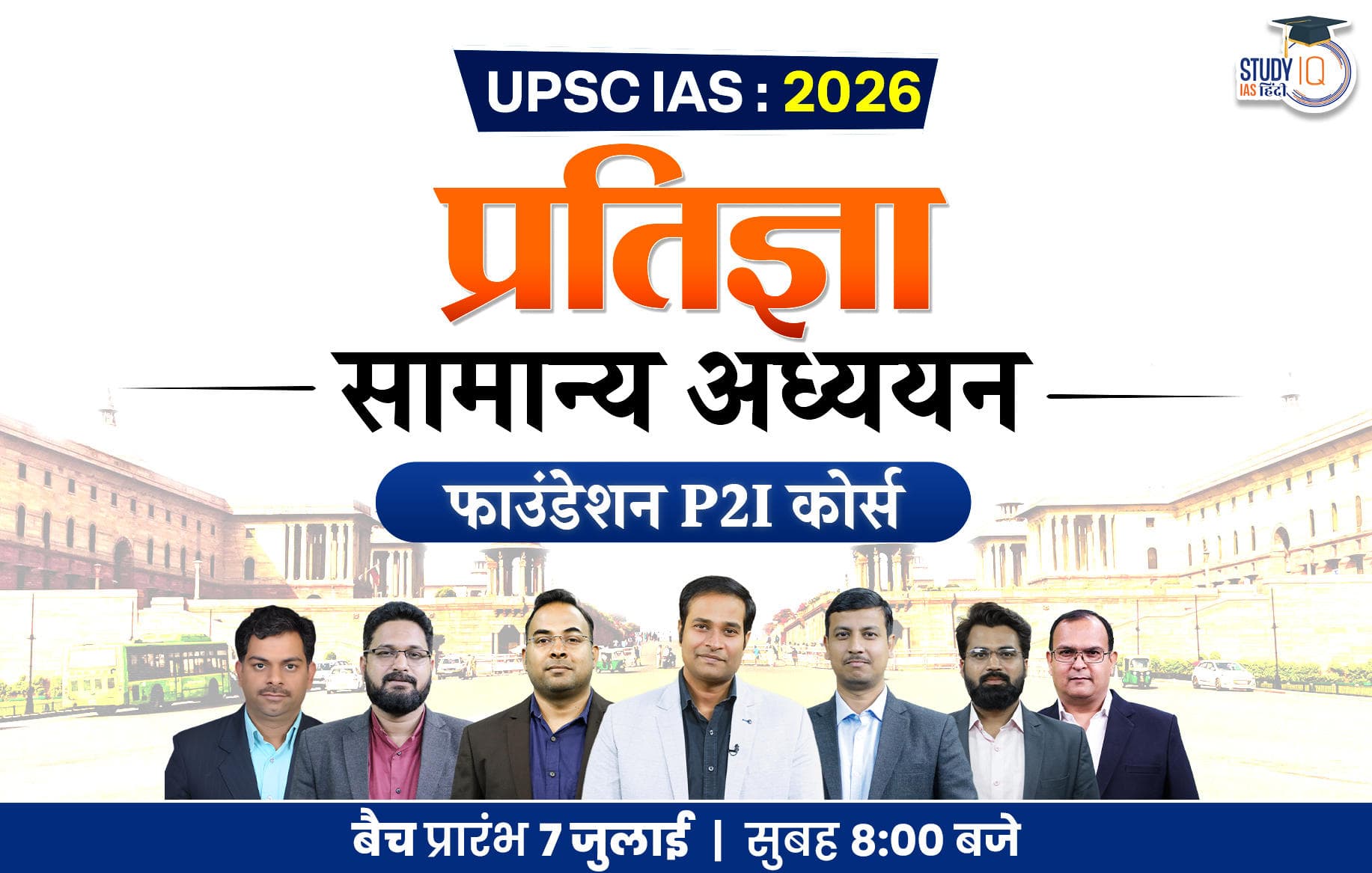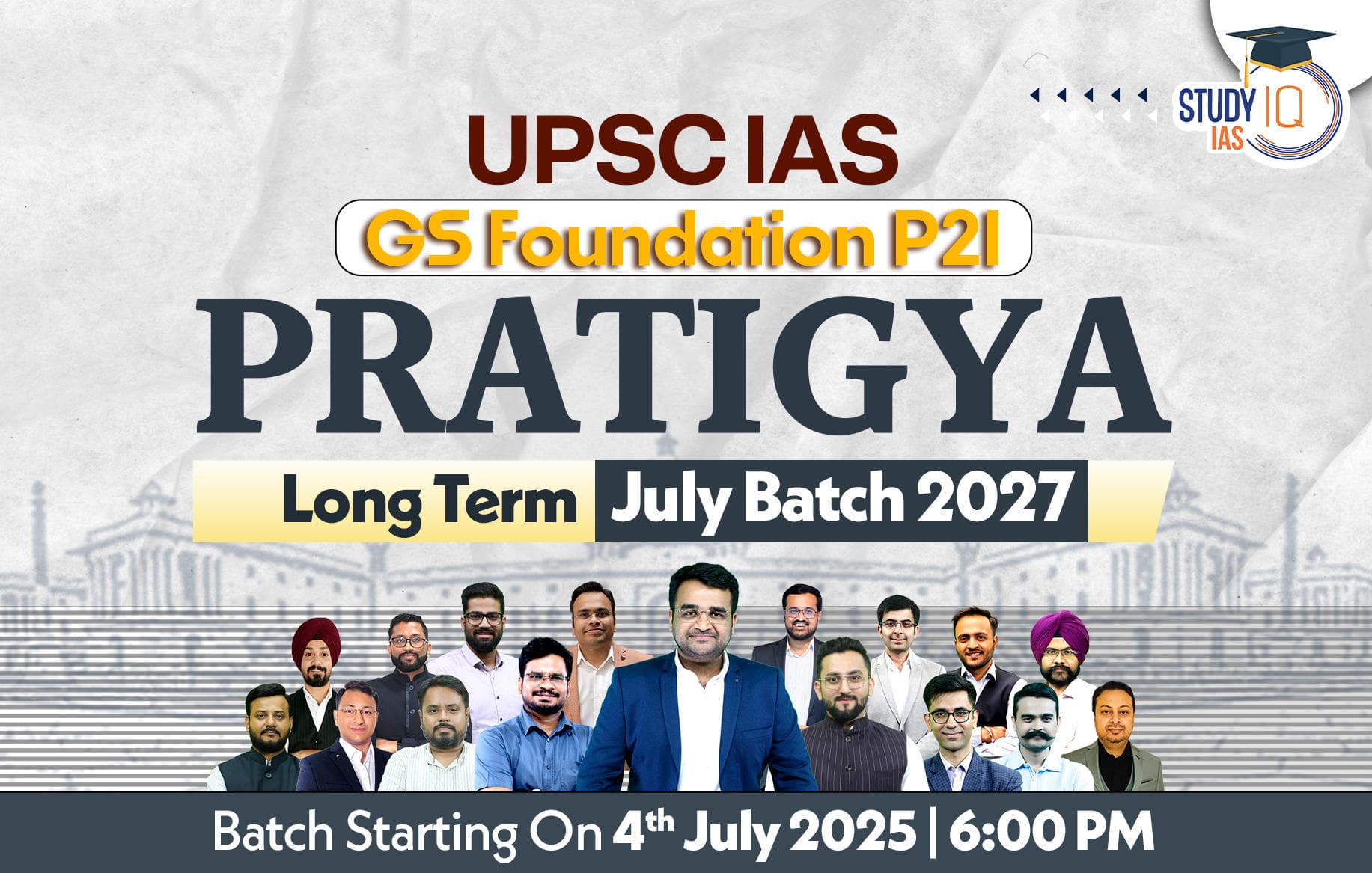Table of Contents
Management is one of the optional subjects with two papers in the UPSC Civil Services Mains Exam (Optional Paper I and Paper II). This article contains the UPSC Management syllabus for IAS. Even after passing the UPSC Exam, the aspirant’s management knowledge remains useful. This is due to the fact that it is an essential part of the job of an IAS officer. Management knowledge gained during IAS preparation remains useful in every area of work and not just during the IAS Exam. Candidates with management degrees or who work as managers would benefit from this optional subject. You can find the optional UPSC Management Syllabus in this article. This article provides you with full information regarding the UPSC Management syllabus that’s required to prepare for the UPSC Syllabus 2025.
UPSC Management Syllabus 2025
The UPSC Management Syllabus covers topics relevant to an IAS officer’s job role and day-to-day management of office duties. As a result, management has emerged as a popular choice among IAS candidates, particularly MBA candidates. The UPSC Management Syllabus teaches candidates the fundamentals of operations management, which is beneficial to all future managers. Furthermore, the ease with which resources are available to engulf the management optional syllabus for UPSC encourages candidates to select this subject as their optional. Because management is a highly competitive subject, candidates ensure that their solutions are precise and distinct. Understand the UPSC Management Optional syllabus, so that you can choose your resources wisely for effective preparation.
UPSC Mains Management Optional Syllabus
In UPSC Mains, the UPSC Management Optional Syllabus is divided into two papers, Paper 1 and Paper 2. Papers 1 and 2 each carry 250 marks, for a total of 500 marks. You must first pass the UPSC Prelims before proceeding to the Mains Examination.
UPSC Management Paper 1 Syllabus 2025
The UPSC Management Syllabus Paper 1 consists of 6 major topics-
- Managerial Function and Processes
- Organizational Behavior and Design
- Human Resource Management
- Accounting for Managers
- Financial Management
- Marketing Management
1. Managerial Function and Process
Concept and Foundations of Management, Evolution of Management Thoughts; Managerial Functions, Planning, Organizing, Controlling; Decision making; Role of Manager, Managerial skills; Entrepreneurship; Management of innovation; Managing in a global environment, Flexible Systems Management; Social responsibility and managerial ethics; Process and customer orientation; Managerial processes on the direct and indirect value chain.
2. Organizational Behaviour and Design
Conceptual model of organization behaviour; The individual processes, personality, values and attitude, perception, motivation, learning and reinforcement, work stress and stress management; The dynamics of organizational behaviour, power and politics, conflict and negotiation, leadership process and styles, communication; The Organizational Processes – decision making, job design; Classical, Neoclassical and Contingency approaches to organizational design; Organizational theory and design – organizational culture, managing cultural diversity, learning organization; organizational change and development ; Knowledge Based Enterprise, systems and processes; Networked and virtual organizations.
3. Human Resource Management
HR challenges; HRM functions; The future challenges of HRM; Strategic Management of human resources; Human resource planning; Job analysis; Job evaluation; Recruitment and selection; Training and development; Promotion and transfer; Performance management; Compensation management and benefits; Employee morale and productivity; Management of organizational climate and Industrial relations; Human resources accounting and audit; Human resource information system; International human resource management
4. Accounting for Managers
Financial accounting – concept, importance and scope, generally accepted accounting principles, preparation of financial statements with special reference to analysis of a balance sheet and measurement of business income, inventory valuation and depreciation, financial statement analysis, fund flow analysis, the statement of cash flows; Management accounting, concept, need, importance and scope; Cost accounting , records and processes, cost ledger and control accounts, reconciliation and integration between financial and cost accounts; Overhead cost and control, Job and process costing, Budget and budgetary control, Performance budgeting, Zero-base budgeting, relevant costing and costing for decision-making, standard costing and variance analysis, marginal costing and absorption costing
5. Financial Management
Goals of finance function; Concepts of value and return; Valuation of bonds and shares; Management of working capital: Estimation and financing; Management of cash, receivables, inventory and current liabilities; Cost of capital; Capital budgeting; Financial and operating leverage; Design of capital structure: theories and practices; Shareholder value creation: dividend policy, corporate financial policy and strategy, management of corporate distress and restructuring strategy; Capital and money markets: institutions and instruments; Leasing, hire purchase and venture capital; Regulation of capital market; Risk and return: portfolio theory; CAPM; APT; Financial derivatives: option, futures, swap; Recent reforms in financial sector
6. Marketing Management
Concept, evolution and scope; Marketing strategy formulation and components of marketing plan; Segmenting and targeting the market; Positioning and differentiating the market offering; Analyzing competition; Analyzing consumer markets; Industrial buyer behaviour; Market research; Product strategy; Pricing strategies; Designing and managing Marketing channels; Integrated marketing communications; Building customer satisfaction, Value and retention; Services and non-profit marketing; Ethics in marketing; Consumer protection; Internet marketing; Retail management; Customer relationship management; Concept of holistic marketing.
Candidate Solve the UPSC Previous Year Question Paper Here!
UPSC Management Paper 2 Syllabus 2025
The UPSC Management Syllabus Paper 2 consists of 6 major topics:
- Quantitative Techniques and Design Making
- Production and Operations Management
- Management Information System
- Government Business Interface
- Strategic Cost Management
- International Business
1. Quantitative Techniques in Decision-Making
Descriptive statistics, tabular, graphical and numerical methods, introduction to probability, discrete and continuous probability distributions, inferential statistics sampling distributions, central limit theorem, hypothesis testing for differences between means and proportions, inference about population variances, Chi-square and ANOVA, simple correlation and regression, time series and forecasting, decision theory, index numbers; Linear programming, problem formulation, simplex method and graphical solution, sensitivity analysis.
2. Production and Operations Management
Fundamentals of operations management; Organizing for production; Aggregate production planning, capacity planning, plant design: process planning, plant size and scale of operations, Management of facilities; Line balancing; Equipment replacement and maintenance; Production control; Supply chain management – vendor evaluation and audit; Quality management; Statistical process control, Six Sigma; Flexibility and agility in manufacturing systems; World class manufacturing; Project management concepts, R&D management, Management of service operations; Role and importance of materials management, value analysis, make or buy decision; Inventory control, MRP; Waste management.
3. Management Information System
Conceptual foundations of information systems; Information theory; Information resource management; Types of information systems; Systems development -Overview of systems and design; System development management life-cycle, Designing for online and distributed environments; Implementation and control of project; Trends in information technology; Managing data resource -Organizing data; DSS and RDBMS; Enterprise Resource Planning (ERP), Expert systems, e-Business architecture, e-Governance; Information systems planning, Flexibility in information systems; User involvement; Evaluation of information systems.
4. Government Business Interface :
State participation in business, Interaction between Government, Business and different Chambers of Commerce and Industry in India; Government’s policy with regard to Small Scale Industries; Government clearances for establishing a new enterprise; Public Distribution System; Government control over price and distribution; Consumer Protection Act (CPA) and The Role of voluntary organizations in protecting consumers’ rights; New Industrial Policy of the Government: liberalization, deregulation and privatization; Indian planning system; Government policy concerning development of Backward areas/regions; The Responsibilities of the business as well as the Government to protect the environment; Corporate Governance; Cyber Laws.
5. Strategic Cost Management
Business policy as a field of study; Nature and scope of strategic management, Strategic intent, vision, objectives and policies; Process of strategic planning and implementation; Environmental analysis and internal analysis; SWOT analysis; Tools and techniques for strategic analysis – Impact matrix: The experience curve, BCG matrix, GEC mode, Industry analysis, Concept of value chain; Strategic profile of a firm; Framework for analyzing competition; Competitive advantage of a firm; Generic competitive strategies; Growth strategies, expansion, integration and diversification; Concept of core competence, Strategic flexibility; Reinventing strategy; Strategy and structure; Chief Executive and Board; Turnaround management; Management of strategic change; Strategic alliances, Mergers and Acquisitions; Strategy and corporate evolution in the Indian context.
6. International Business
International Business Environment : Changing composition of trade in goods and services; India’s Foreign Trade: Policy and trends; Financing of International trade; Regional Economic Cooperation; FTAs; Internationalization of service firms; International production; Operation Management in International companies; International Taxation; Global competitiveness and technological developments; Global e-Business; Designing global organizational structure and control; Multicultural management; Global business strategy; Global marketing strategies; Export Management; Export- Import procedures; Joint Ventures; Foreign Investment: Foreign direct investment and foreign portfolio investment; Cross-border Mergers and Acquisitions; Foreign Exchange Risk Exposure Management; World Financial Markets and International Banking; External Debt Management; Country Risk Analysis
This article discusses the complete UPSC Management syllabus for UPSC/IAS. candidates can download the PDF in this article. For more details related to UPSC Examination; students can visit the official website of StudyIQ UPSC Online Coaching.


 Daily Quiz 05 July 2025
Daily Quiz 05 July 2025
 SSC MTS Apply Online for 1075 Posts – ...
SSC MTS Apply Online for 1075 Posts – ...
 Dynamic Pricing: What It Is and Why It's...
Dynamic Pricing: What It Is and Why It's...





















